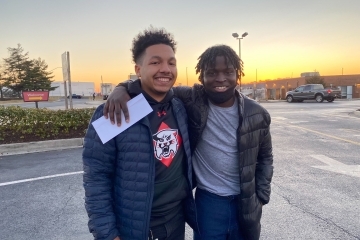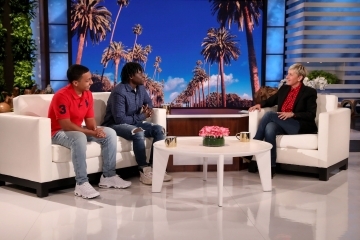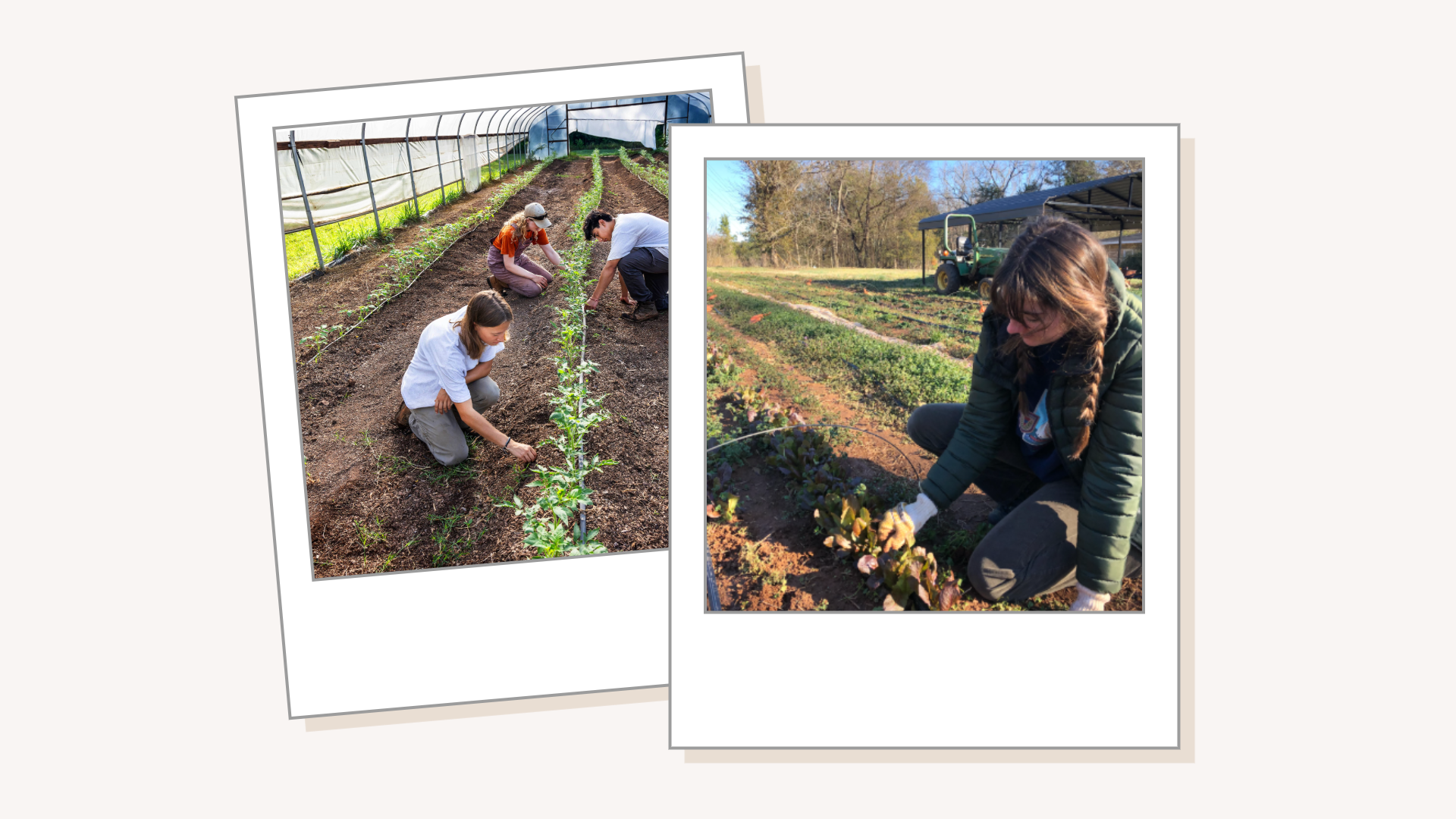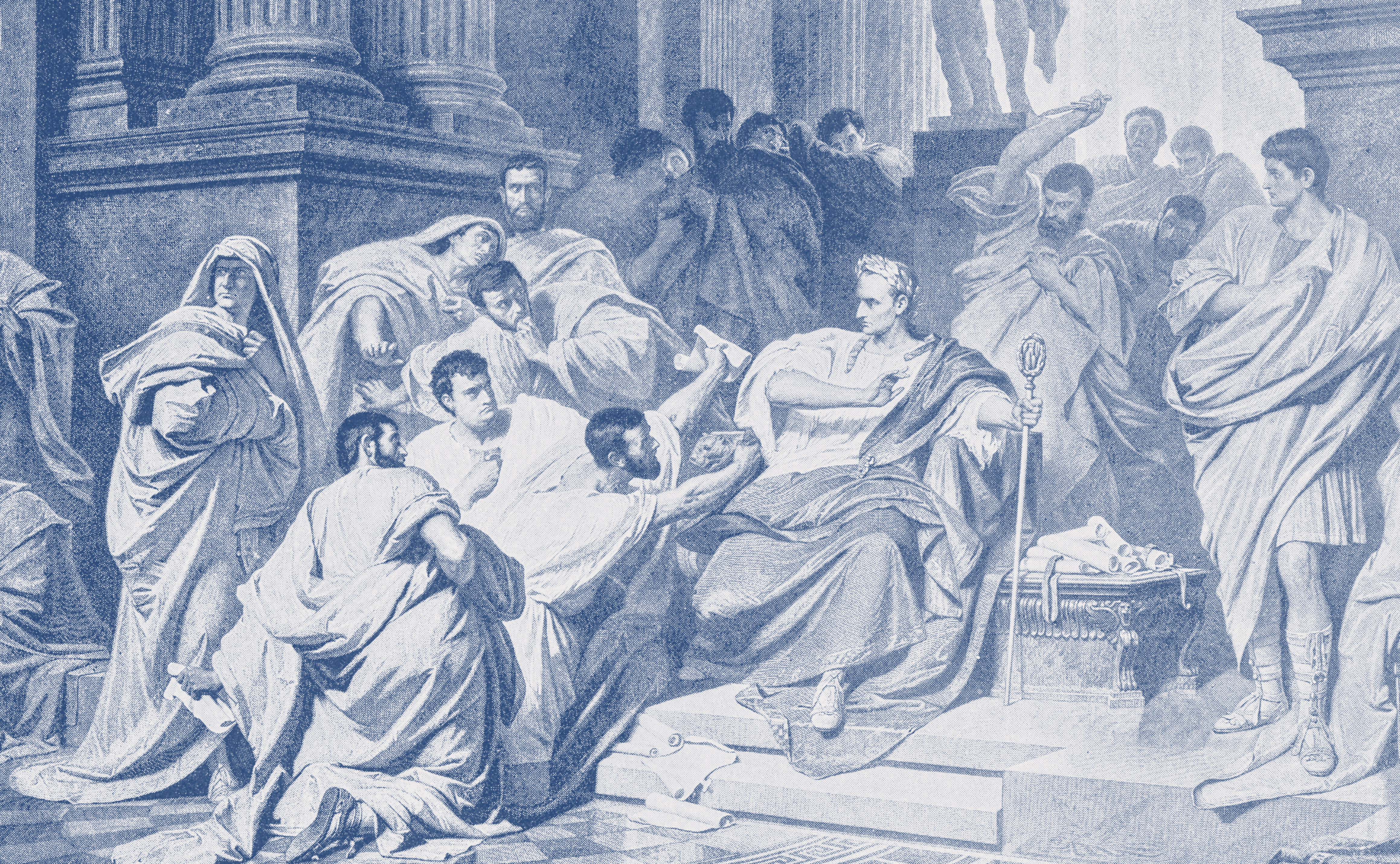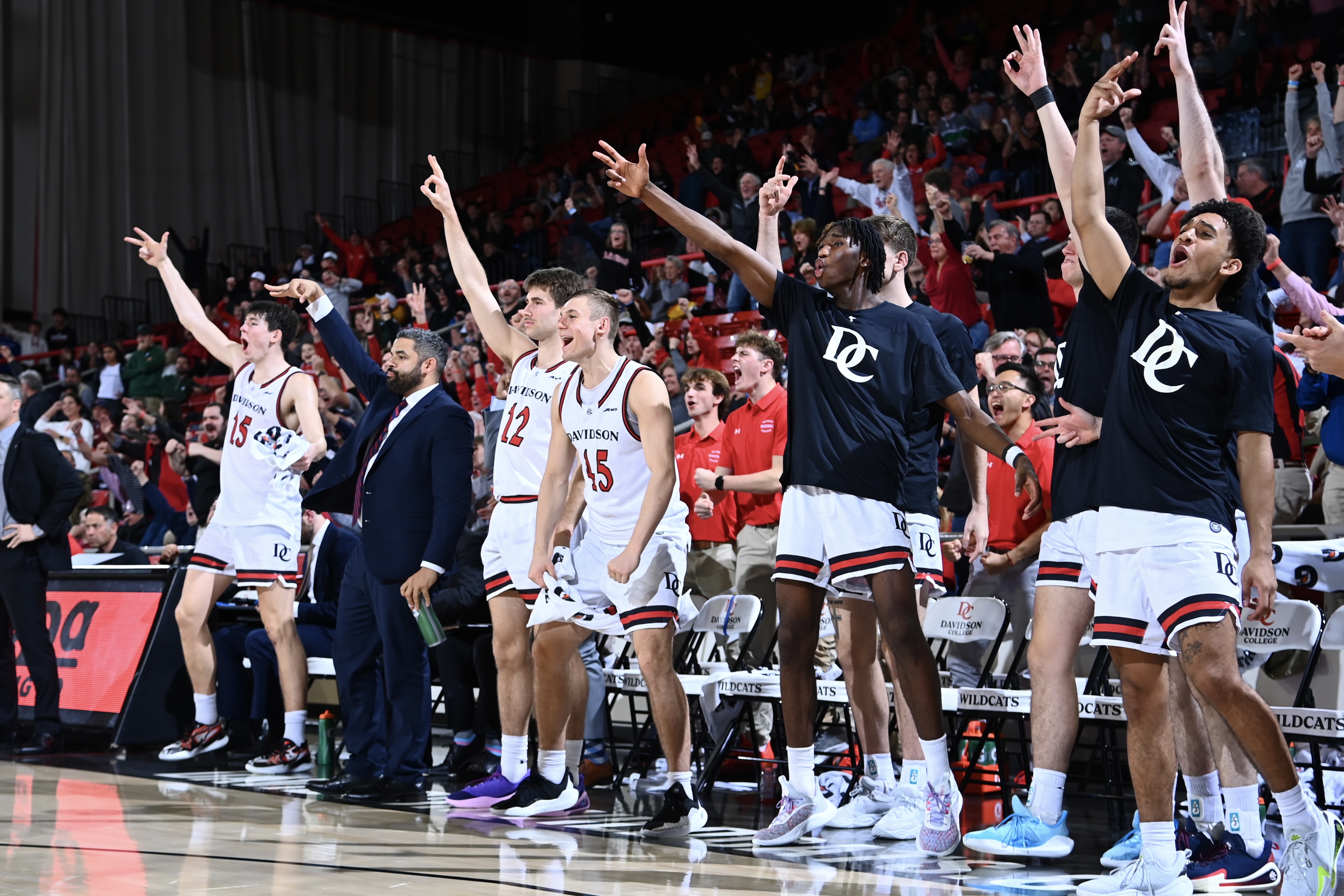Not Forgotten: A Student’s Journey to Help Free a Childhood Friend From Prison
June 17, 2022
- Author
- Danielle Strickland

Brandon Reid '22 and Sura Sohna
Brandon Reid ’22 waited for the judge to break the silence in the Annapolis courtroom. His childhood friend’s life teetered between freedom and years behind bars. Anxiety gave way to elation when the judge ruled to release Sura Sohna 12 years early.
The decision spurred a flurry of media attention, including a story in The Washington Post and an appearance on the popular “Ellen DeGeneres Show.” The story begins more than a decade ago, in an elementary school classroom.
Reid (formerly Brandon Harris), a Belk Scholar and Davidson student government president, and Sohna were childhood friends but drifted apart after they went to different high schools. From there, their paths diverged—Reid thrived academically, Sohna veered into criminal activity.
When the COVID-19 pandemic hit, Reid was working his way toward college graduation. Sohna, meanwhile, languished in prison, serving a 14-year sentence for first-degree burglary.
Reid moved home to Annapolis in March 2020. After hearing about the pandemic’s effect on prison conditions and his childhood friend’s circumstances, he decided to check in with Sohna. He sent a letter, Sohna responded.
Their correspondence laid the foundation for “Telling Stories of the Ignored and Forgotten,” Reid’s independent study project.
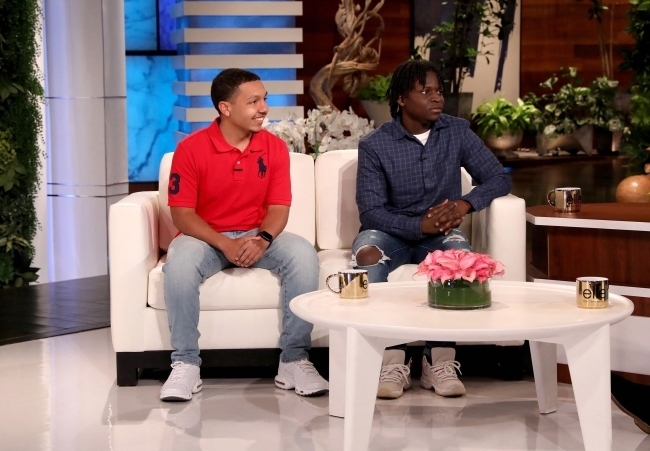
Brandon Reid ’22 (left) and Sura Sohna shared their story on “The Ellen DeGeneres Show.”
Digging Deeper
“Originally, I planned to research different stories and write an essay every two weeks,” Reid says, “but I quickly realized that in order to do this well, I needed to dive deeper into a single story, instead.”
The semester-long project evolved into much more than a grade on Reid’s transcript. It shifted his thinking and his plans, from pre-med and philosophy at Davidson to philosophy and pre-law, and then to law school at Columbia University in the fall.
“I am amazed at the lack of understanding so many people have about people and their situations,” he says. “We’re so quick to judge a person based on one action or one decision. I believe everyone is a product of their own experiences, and we’ve moved away from trying to understand where people are coming from. Sura has great potential in his life; he just needs people who believe in him.”
Reid worked alongside James K. Batten Professor of Public Policy and renowned journalist Ike Bailey ’95, whose own life draws many parallels to Reid’s experience. Bailey lent professional and personal expertise to the project.
“I was a Black man attending Davidson while a loved one was in prison, and I know the shame that can come with that experience,” Bailey says. “The similarities were too great. If I could help a student deal with this burden he is going through and guide him through this process of investigation and journalism, I knew I had to help.”
Bailey writes for publications across the country on topics ranging from crime and justice to politics and racism. His memoir, My Brother Moochie, offers Bailey’s heartfelt account of his family’s struggles in the aftermath of his brother’s murder conviction and subsequent life sentence.
“I know what it can mean for a person [in prison] to have someone outside those bars,” he says.
“It can keep them sane, frankly. It can give them
a reason to try to get better in a place where it is really, really difficult to get better.”
Pandemic-related measures added to the difficulty of prison life, expanding restrictions and further limiting access to the outside world. Reid viewed himself as a bridge between Sohna and the world, and hopes Sohna’s story will open the minds of those who hear it.
“The whole thing is amazing,” Sohna says. “I had a rough time growing up, and I will never forget my trials, but everything is a learning experience. Now, I want to be a lifelong learner and lift others up as
I lift myself up. I know greatness is in me. Brandon and Dr. Bailey and this whole experience have helped me look at life differently.”
As part of his research, Reid sent personal letters to every one of Sohna’s 12 victims. He interviewed the prosecutor. He reached out to police officers. He interviewed members of Sohna’s family. He connected with Maryland’s governor to get Sohna permission to be a part of the public presentation.
Sohna called Reid at least three times a week, and the calls motivated him to stay positive and focus on the future.
The project culminated in a live public Zoom presentation that hundreds watched.
Life-changing Decision
In December 2021, Sohna’s lawyer was granted a request to get Sohna’s sentence reevaluated. At the February hearing, Sohna made an impassioned speech and Reid took the stand on behalf of his friend. The same judge that sentenced Sohna in 2020 released him.
The story of Sohna’s release and Reid’s involvement quickly spread. In early March, Reid got a call from an “Ellen” producer. They flew to Los Angeles to film the episode but were sworn to secrecy until the episode aired April 6.
The show frequently supports its guests, and both Reid and Sohna left with something more than a once-in-a-lifetime experience. Brandon's Coalition for Success, a mentoring nonprofit Reid started in high school, received a check for $10,000. Sohna, who wants to study photography and film production, took home a computer, camera, tripod, bag and light meter.
As the attention subsides, Sohna is focused on each day and fulfilling a promise he made to himself —to make himself and Reid proud. Reid says he’ll be there for his friend along the way.
“No matter what, I’m going to be working with Sura to make sure he’s able to stay on the right path and accomplish whatever he wants to accomplish for himself,” Reid says. “This connection is lifelong.”
This article was originally published in the Spring/Summer 2022 print issue of the Davidson Journal Magazine; for more, please see the Davidson Journal section of our website.
